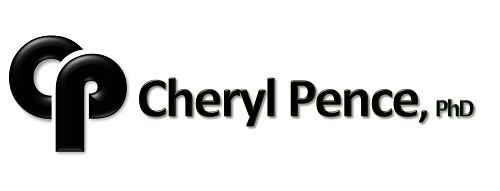
Determine the Skills You Want to Use
Some of the major determinants of career success are the skills, or proficiencies, talents, and abilities, you have developed through education, training, and experiences. Understanding what you are good at can help direct your career or activity search to the areas where success might be more achievable and you may highlight your skills in a resume, cover letter, website, work samples, or interview. However, do not let a lack of the required skills discourage you because you can likely gain the skills you need through formal or informal education, training, and experience!
Clarify the Skills You Can, Will, or Want to Use
Having a variety of skills can be helpful in your career search. However, it can also be confusing, especially when someone is interested in hiring you for a skill you possess but prefer not to use. For example, you may have the technical expertise to work on computers because you have had training and experience learning that skill. However, you may have burned out during your last job overusing that skill and prefer to enter a completely new field. Although technology work may pay well and you can do it, you may not want to do it. Consequently, going in a new career direction can be scary if you have not yet developed skills in that field to make you marketable.
Additionally, some people feel that because they have particular skills, they must use them. That is not necessarily true. People may have skills they can use, but they are not willing to or do not want to use them. This can create confusion about what job they should take versus what job or activity they want to pursue.
Therefore, to help you clarify the skills that you prefer to use, it is helpful to identify your skills but also go beyond that and determine if you are willing to or want to use your skills. This will help you narrow down your career possibilities to those you will be more likely to enjoy. The steps below can guide you:
- First, identify any skills you have; these are all the things you can do. Compile a list and include your job-related or activity-specific skills as well as transferrable skills that are useful across a number of fields (e.g., leadership, sales, teamwork, communication). Several free online skills inventories are available if you choose to use them including:
- ISeek Skills Assessment
- O*NET Skills assessment
- O*NET Skills search (ability to perform a task well)
- O*NET Abilities search (a natural ability or innate potential to perform a task)
- O*NET Knowledge search (principles and facts learned that apply in general domains)
- Go through the list and mark all of the items that you are willing to do. For example, if you can cook well, are you willing to make a career of it or be the head chef at your family reunion?
- Narrow the list even further by annotating the items that you want to do. These items should include aspects of your ideal career or life where you want to use your skills routinely.
- As a final step, prioritize the list of your preferred skills that you want to use. This will help when you are faced with a decision between two directions. For example, if you love cooking and working with children, you may aim for a career or volunteer activity where you get to do both. You may have the time to wait until the perfect combination comes along or you can create your ideal job. However, if you are less flexible with your job search and have an opportunity to cook for adults or teach children a non-cooking topic, would either of those options appeal to you more?
The process of narrowing down your skills to those you want to use and then prioritizing them will help you determine which skills you should consider highlighting more prominently and what line of work may fit well with those skills.
Avoid Distractions
In addition to feeling the pressure to use skills you possess, but do not want to use, other distractions can deter you from moving toward your ideal job. For example, it may difficult to see a list of top-paying jobs or top skills in demand and feel that you must aim your career in that direction to be successful. However, the skills most desired by employers include those that are transferrable and can apply across many career fields. For example, the National Association of Colleges and Employers published their Job Outlook 2020 that included survey results of 105 employers’ regarding their intentions to hire new college graduates. The employers reported that the skills they most valued for potential employees included:
- Problem-solving skills
- Ability to work in a team
- Strong work ethic
- Analytical/quantitative skills
- Leadership
- Verbal communication skills
- Initiative
- Detail-oriented
- Technical skills
- Flexibility/adaptability
Therefore, focusing on skills that can be used across fields may be one way to highlight your competence when moving in a new direction. When changing fields, consider the transferrable skills you prefer to use in your career and identify ideal jobs that align with those. For example, my career path has included jobs in the military, human resources, financial advising, and counseling. It may seem that I moved in a variety of directions. However, I can easily point out the transferrable skills that I most enjoyed using and would like to continue using in my career. They included working with people, verbal and written communication, problem-solving, gathering information, short- and long-term planning, learning, teaching/training, and others. Therefore, my ideal job includes elements of learning and teaching so I can continue to grow personally and professionally while helping my clients, students, and supervises with the knowledge and experiences I have gained.
Now, what about you?
- How have your education, training, and experiences helped you develop your proficiencies, talents, and abilities?
- What are the common themes across your education, training, and experiences?
- If you could create a list of ideal jobs using all of the skills you most prefer to utilize, what types of jobs would your list include?
Fill in the Gaps
So far, you have focused on identifying the skills you possess. This is what employers will want to know more about, and this is where you can shine. However, are there skills that you would like to use but need to gain or strengthen first? Moving into a new career, getting a promotion into a new position, transferring within a company can all be areas where additional education, training, and experience may be helpful. Therefore, if you have not already identified skills want to use but you need to improve, then determine how, when, and where the opportunities will be to strengthen them. It may be an on-the-job training program, going back to school, volunteering, or working part-time in a new field to gain the skills you desire.
Narrowing down your list of preferred skills can help you identify where you may want to focus your attention or fill in the gaps. Through clarifying the skills you want to use, avoiding the distractions that make you feel you should use certain skills, and strengthening skills you would like to use, you are more likely to create a career and life you love.
- How was it helpful in identifying the skills you can, will, or want to use?
- What did you discover about yourself and how you prioritized your preferred skills?
- How are you taking action today to focus on the skills you want to use and avoid the distractions?
- What actions are you taking to enhance the skills you would like to use but may not feel strong with?
1National Association of Colleges and Employers. Job Outlook 2020. http://www.naceweb.org
